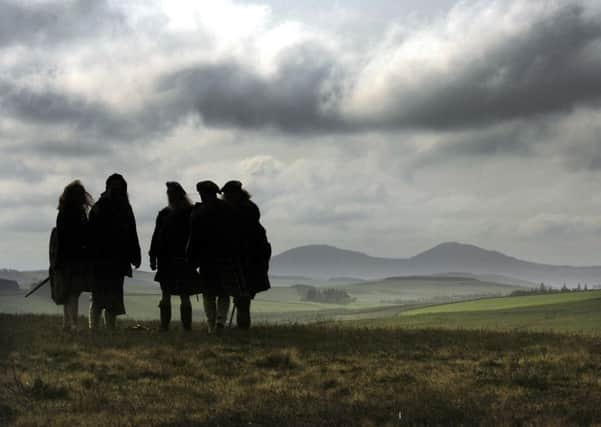Historic Scotland slammed over Culloden housing


And questions are being asked about the role of Historic Scotland which raised no objection to 16 homes being built just 400 metres from the ‘internationally important’ site on the outskirts of Inverness.
A Scottish Government reporter this week upheld an appeal by the developers, Inverness Properties, after it had been rejected by Highland Council.
Advertisement
Hide AdAdvertisement
Hide AdLawyers at the local authority are now examining the feasibility of challenging the decision in the Court of Session.
Councillor Ken Gowans said: “The next stage is that we could take it to the Court of Session.
“I’ve asked the council’s legal team to investigate the feasibility of us being successful in appealing the decision.”
A Highland Council spokeswoman said: “Mr Gowans asked our legal team to consider if there is a basis for a challenge.
“Our initial view is there are no immediately obvious grounds for a challenge, but we are going to take time to review this.”
Opponents to the scheme claim the development will damage the setting on Drumossie Moor and set back archaeological research.
Culloden Battlefield was the location of the last pitched battle fought on British soil where Bonnie Prince Charlie, the Young Pretender, and his Jacobite Army were defeated by Government forces on April 16, 1746, ending his claim to the British throne – and claiming over 2,000 lives.
Historic Scotland concluded that the homes would “be barely visible, if at all” from the centre of the battlefield – a significant factor in the development being approved on appeal this week.
Advertisement
Hide AdAdvertisement
Hide AdThe agency said it did not consider a site visit necessary because the applicant simply wanted to replace existing agricultural buildings with homes.
In a statement,a spokesperson said its officers were “highly familiar” with the battlefield and examined it in detail when it was assessed for inclusion in the Inventory of Historic Battlefields in 2011.
It added: “The proposed development sits on a brownfield site currently occupied by large agricultural buildings. The developer is proposing that these agricultural buildings be demolished with 16 houses built on their footprint. Given the development’s location on the edge of the battlefield designation, and that it is to replace existing buildings, a specific visit to the site of those buildings was not required.”
But Councillor Gowans felt it was totally unacceptable that a decision of such magnitude could be taken from an office hundreds of miles away.
He said: “It almost smacks of disinterest. If this was Urquhart Castle they may have taken a different view but this is a National Trust property.
“How did they assess it if they didn’t visit? Surely they didn’t just do it from memory?”
In his findings, the Scottish Government reporter stated that he agreed with Historic Scotland which felt the development was unlikely to “significantly increase the impact on the character and ambience of the battlefield.”
Battlefield owner the National Trust for Scotland objected to the housing scheme and group manager Alexander Bennett was disappointed to learn Historic Scotland did not visit the site.
Advertisement
Hide AdAdvertisement
Hide AdHe added: “It’s important that full assessments should be carried out with individual cases but they know the site well, they know its significance. They probably felt they had enough information and advice.”
The development plans have been criticised not only at a local level, but also internationally.
A petition set up to halt the housing project attracted hundreds of angry comments within hours from as far afield as North America and Australia.
Expat Scots accused the Scottish Government of betraying the memory of 2000 soldiers who died during the battle in which Bonnie Prince Charlie and his Jacobite army were routed by government forces.
David Tolmie, a self-confessed “history buff” from Edinburgh, set up an online petition and it attracted more than 500 signatures within 11 hours, many from overseas.
Linda Stubblefield, from Kingsport, Tennessee, wrote: “Culloden Battlefield is sacred ground for all Scots, no matter how far removed from the shores of Scotland.”
Amy Walts, from Rochester, New York, said: “Culloden is sacred ground where countless people lost their lives.
“It is still thick with emotion and historical significance, and a place of pilgrimage for many.
Advertisement
Hide AdAdvertisement
Hide Ad“Any development of that land is shameful and reprehensible.
“The international community sees this proposal and strongly disapproves.”
Kathleen Findlay, from Canada, said that “if we stop honouring the dead” then “we betray them”.
Petitions from Germany, Finland, Greece and the Netherlands also voiced their concerns, with one saying it was “beyond disrespectful”.
A spokesman for Inverness Properties said the housing was replacing unsightly farm buildings, would “enhance” the surroundings of the battlefield and was in line with planning guidance.
SEE ALSO